Once again, to kick off the new year, I prepared a list of the Top Ten Technologies for our friends at the Atlanta Business Chronicle. The limitations of smearing ink on dead trees forced the newspaper to cut the list down a bit. But electrons are cheap. Just for completeness, here’s my original Top Ten, with special attention to how they’ll impact Atlanta and Georgia. Enjoy!
Security
In 2014, online attacks crippled targets ranging from individuals (identity theft) to a major movie studio. And the ability to upload, share, and leak videos affected everything from Hollywood scandals to the Ferguson riots. 2015 may be the year where we accept that there is no such thing as perfect Internet security, and that we need to manage our online affairs with the assumption that there are bad guys on both sides of the firewall. Atlanta has been an infotech security cluster for years, so this continuing trend means opportunity for local stalwarts like IBM Internet Security Systems and Dell SecureWorks, and for startups like Ionic Security, Pindrop Security, and First Performance.
The Internet of Things
This is such a perennial prediction that it’s getting repetitive. But the facts are that, each year, billions of new devices are being connected to the Internet. Corporate giants (including Atlanta operations for AT&T, NCR, and Cisco) are scrambling to get as many sensors and communication chips into as many devices as possible — both to enable a new generation of services as well as to extract new streams of payments. The tidal wave of wireless data from these smart devices will open up new opportunities for Atlanta startups like Cognosos and Bastille Networks.
Sensors
If there are really going to be 50 billion devices connected to the “Internet of Things” by 2020 (as predicted by Cisco), what will they all be doing? Many of these will be measuring real-world data: location, motion, temperature, health information, chemical data, and more. Multiple ATDC companies involve sophisticated new sensors. Next year, Lumense will be shipping chemical and biological sensors that are based on Georgia Tech’s decades of optical sensor research. NextInput will integrate force-sensitive displays into consumer and industrial electronics. Award-winning Sensiotec is building Dr. McCoy’s “Star Trek” sickbay bed with non-contact biosensors. And in 2015, you’ll be able to buy Soneter‘s SMARTFlowH20 water meter at major retailers.
Mobile Computing
2015 may be the year that we can stop talking about “mobile computing” and just talk about “computing.” Users are no longer interested in hearing about limitations of what, where, and when they can access their data. Whether from laptops, from smartphones, or from automobile dashboards, mobile computing will continue to define the computing experience. Mobile devices become ever lighter, more powerful, and more mission-critical. Their voracious appetite for wireless data is good news both for Atlanta-based AT&T Wireless as well as local startups like Alii, Gozio, Kanga, StarMobile, Kevy, and Yik Yak.
Cloud-Based Analytics
The inexorable march away from the corporate mainframe continues with powerful cloud-based analytics powering data-as-a-service solutions. As corporations have moved from managing gigaabytes to terabytes to petabytes of data, dedicated server rooms have become to seem quaint. At the same time, processor-intensive algorithms are wringing insights out of these vast databases in new and sometimes surprising ways. From Urjanet (enterprise energy management) to Predikto (predictive analytics for industrial machinery) to Clinigence (electronic medical records analysis) to Rimidi (diabetes care management) to MetroTech (real-time traffic analysis) to Emcien (automated pattern detection), Atlanta has strong startups across the cloud-based analytics spectrum.
3D Printing
Again? Yes, again. 3D printing has gone far beyond making customized plastic toys. Using a design/build studio funded by the Georgia Research Alliance, one ATDC startup was able to iterate a dozen different product designs in the real world within weeks, which would have taken months (or years) using traditional techniques. In another company I’m involved with, an engineer can upload the design for a complex machine part and receive back a working unit in three days for $4000. Using traditional machine shop techniques, that same working unit would cost $20,000 and take six weeks to build. Georgia Tech spinout DDM Systems is a national leader in industrial applications of intricate additive manufacturing.
Desalination
There’s plenty of water on Earth. But, in a cruel twist of geography and climate, there’s not enough fresh drinking water where billions of people want to live. From Africa’s Sahara to the megacities of Latin America to the glitzy beaches of Southern California, there simply isn’t enough rainfall to support the population. Does anyone remember Georgia’s drought of 2007?
Distilling fresh water from sea water is an old technology, of course; Thomas Jefferson wrote about it, and you drank distilled sea water on your last Carnival Cruise. But it’s so energy-intensive that it’s rarely used. Newer technologies have been under development for decades, including sophisticated membrane-separation systems at Georgia Tech. In 2015, the combination of rising demand, cheaper energy, and political willpower should see significant installations of large-scale desalination systems to serve at-risk populations.
Electric Cars
I think 2015 is the year that electric cars become boring. Not that the cars themselves are boring — the Tesla Model D is likely to become one of the most exciting cars ever built. But “boring” in the sense that your neighbors are no longer particularly interested that you chose to park an electric car in your driveway. And “boring” in that you expect to find a charging station at your shopping center, at the airport, and at Manuel’s Tavern. After decades of false starts, electric cars are here to stay. From the exotic Tesla to the more-pedestrian Chevy Volt plug-in hybrid to the ubiquitous Nissan Leaf, Atlanta is a national leader in the adoption of electric cars. They’re already silent; soon, they’ll just be invisible. And startup companies like Georgia Tech spinout Sila Nanotechnologies are well positioned to build the lighter, smaller, and cheaper batteries that millions of electric cars will need.
Reusable Rockets
Why is space travel so expensive? Because we throw away the rocket after every trip. Imagine what a ticket from Atlanta to Australia would cost if you pushed the 747 into Sydney Harbor after every flight! (The now-retired Space Shuttle was an early, flawed, and ultimately failed attempt to reuse parts of the spaceship, but we’ve been back to using disintegrating totem poles for years now.)
Next week [this was written before the 10 Jan attempt], Elon Musk’s SpaceX is going to try the largest-scale reusability demo in the history of rocketry, by landing the massive Falcon 9 first stage on a floating barge. If it works (and, given Elon’s track record with SpaceX and Tesla, when it works), it’ll be an enormous step towards bring space launch costs down by 90% or more. It’s likely that future generations of reusable launch systems will fly from the planned Spaceport Georgia near Cumberland Island.
And, finally, we get to declare the death of one technology in 2015:
Voicemail
The first office voicemail systems in the mid-1980s were a huge relief to overworked administrative staff everywhere. And the ability to get your messages from the airport Crown Room after business hours was a godsend to road warriors like me. (This was before cellphones, kids.) Billion-dollar businesses were built, and acquired, around voicemail technology.
But the world changed, and even greybearded geezers are comfortable with email (not to mention text messages, social media, and various corporate communication systems). And we got a lot more impatient with listening to someone hem and haw their way through a 60-second recording that held maybe six seconds of real information. And, in general, we spend a lot less time at our desks than we used to. Over the last several years, many of us set our outgoing voicemail messages to a brusque “I don’t listen to voicemail; try something else.”
Now, Atlanta titan Coca-Cola Company has embraced the inevitable and turned off voicemail at its headquarters. More are sure to follow. By the end of 2015, it won’t even be a news story when your company does the same. In the technology world, glory is fleeting.


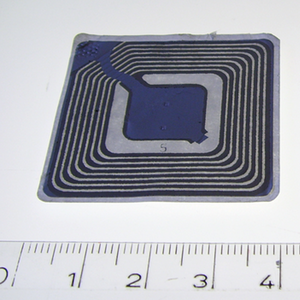
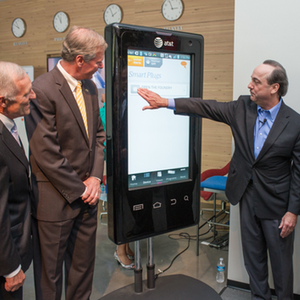

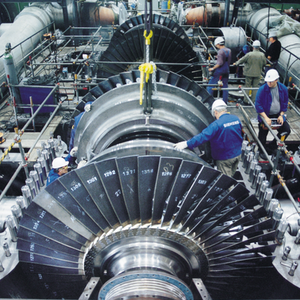

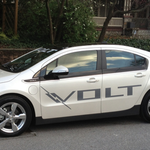
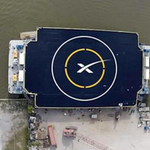
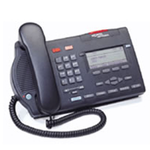
Look out for uberization and fungibile companies as well. Moveloot.com (the uber of selling used furniture) and Beepi.com (the uber of used cars sales) are poised to stampede into Atlanta.